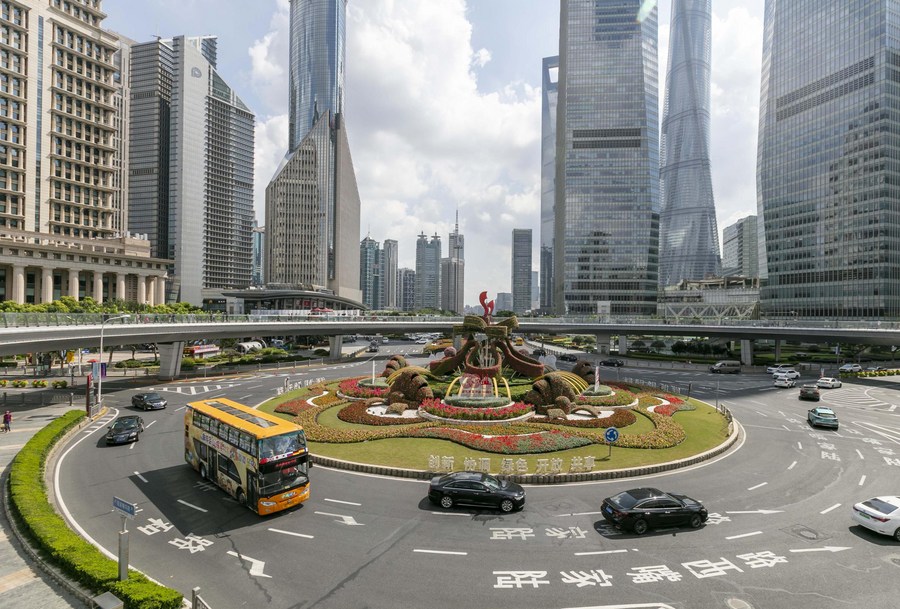China strengthens capital guidance to spur economic growth

Photo taken on Sept 30, 2020 shows the street view of the Lujiazui area of Pudong, East China's Shanghai. [Photo/Xinhua]
BEIJING-China has sent a clear signal to step up efforts in guiding capital to develop in a stable and orderly manner in a recent tone-setting economic meeting.
China announced it would set up "traffic lights" to give full play to the positive role of capital while effectively reining in its negative effects, according to the annual Central Economic Work Conference held in Beijing from Dec 8-10.
Stressing the need to understand the nature of capital and its behavioral patterns, the meeting said China will strengthen its effective supervision of capital in accordance with the law and prevent its unchecked growth.
After decades of sustained development, China's economy has accumulated huge capital resources. However, problems including monopolies involving internet platform enterprises and disorder in competition, among others, have also emerged.
Amid efforts to crack down on the disorderly expansion of capital and foster fair competition, Chinese authorities have taken a slew of measures targeting monopolies and other irregularities.
China's State Administration for Market Regulation imposed administrative penalties on several companies for violating antimonopoly law earlier this year.
The regulations are necessary measures to improve the healthy development of relevant industries and promote social fairness and justice, said Xu Shanchang, an official with the National Development and Reform Commission.
The capital market is a key area for authorities to guide capital to develop in an orderly and healthy manner.
The country will reinforce the guidance on capital, exercise strict oversight on financing, mergers and acquisitions in specific sectors, and work with relevant parties to establish sound systems and mechanisms to prevent the disorderly expansion of capital, said the China Securities Regulatory Commission in a meeting held on Dec 13.
China will give full play to the positive role of capital as a production factor and continue to facilitate the role of the capital market in promoting the circulation of capital, industry, and science and technology, the meeting noted.
"To curb the disorderly expansion of capital does not mean that we do not need capital. Instead, we need it to develop in an orderly manner," said Han Wenxiu, a senior official with the Central Committee for Financial and Economic Affairs.
Among measures to empower capital to better serve the market-oriented economy, China issued a guideline in April on advancing reforms to streamline administration and delegate power amid efforts to improve the business environment and push high-quality development.
In the meantime, China has witnessed an increase in the number of new taxpaying market entities in the first nine months as the country's economy continues to recover from the COVID-19 pandemic.
A total of 9.7 million new market entities handling tax-related business were registered during the January-September period, an increase of 16.1 percent from the same period last year, said the State Taxation Administration.
In addition, tax reductions, trimmed negative lists for foreign investment and the lifting of foreign-ownership caps have also brought in a large inflow of capital, boosted the Chinese economy via increased competition and enhanced cooperation.
As an important source of capital, foreign direct investment into the Chinese mainland in actual use is expected to surpass 1 trillion yuan ($157 billion) in 2021. China's FDI inflow totaled 999.98 billion yuan in 2020, soaring 157.7 percent from 388 billion yuan in 2001, Gao Feng, an official with the Ministry of Commerce, said at a news conference on Dec 9.
China will further shorten the negative list on foreign investment, facilitate services for foreign-funded enterprises and projects, and foster a law-based, international and convenient business environment to share its market opportunities globally, said Gao.

